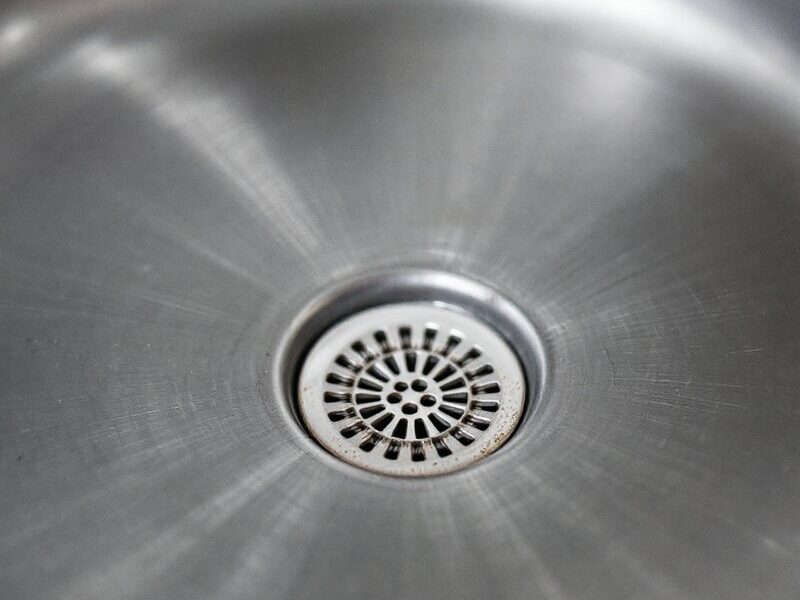Every homeowner has faced the frustration of a clogged kitchen drain at some point. Clogs can lead to slow drainage, unpleasant odors, and even costly plumbing repairs. With so many potential causes, it’s essential to find effective solutions to keep your pipes clear. One surprisingly simple method is using salt. In this article, we will explore why put salt down your kitchen drain and how it can help maintain clog-free pipes.
| Aspect | Details |
|---|---|
| Purpose of Salt | Salt helps maintain clog-free pipes by absorbing moisture and potentially dislodging minor clogs when used in combination with other ingredients like baking soda and vinegar. |
| How It Works | When salt is poured down the drain, it absorbs water particles, which may initiate a chemical reaction that helps break down buildup in the pipes. |
| Combination with Other Ingredients | For effective results, salt should be combined with baking soda and vinegar. This mixture can foam and help dissolve grease and debris in the pipes. |
| Preventive Maintenance | Regularly pouring salt down the drain can be part of a preventive maintenance routine to avoid future clogs, especially when combined with hot water. |
| Cost-Effectiveness | Salt is an inexpensive and readily available household item, making it a cost-effective solution for minor drain issues. |
| Safety Concerns | Caution is advised when using boiling water with salt, especially in homes with PVC pipes, as the heat can warp the pipes and cause leaks. |
| Limitations | Salt alone is not a reliable solution for serious clogs; it may provide minimal benefits for minor issues but is not effective for deep blockages. Professional help may be needed for severe clogs. |
| Recommended Method | A common method involves pouring ½ cup of salt, ½ cup of baking soda, and ½ cup of vinegar down the drain, followed by hot (not boiling) water to flush the mixture through the pipes. |
| Odor Control | Salt can also help reduce unpleasant odors from drains by breaking down organic material that contributes to foul smells. |
| Professional Advice | For persistent drain issues or severe clogs, it’s advisable to consult a professional plumber rather than relying solely on DIY methods. |
Understanding Drain Clogs

What Causes Kitchen Drain Clogs?
Kitchen drains can become clogged for various reasons. Understanding these causes is the first step in preventing future issues.
- Food Particles: Small bits of food can accumulate over time, especially if they are not disposed of properly. Even seemingly harmless items like rice or pasta can swell and create blockages.
- Grease: One of the most notorious culprits, grease from cooking can solidify in pipes, trapping other debris and leading to significant clogs.
- Hair: While more common in bathroom drains, hair can also find its way into kitchen sinks, especially if you wash your hair in the kitchen or if pets are involved.
The impact of these clogs can be severe. They can lead to slow drainage, which can disrupt your cooking and cleaning routines. Over time, persistent clogs can damage your plumbing system, leading to costly repairs.
Signs of a Clogged Drain
Recognizing the signs of a clogged drain early can save you time and money. Here are some common indicators:
- Slow Draining Water: If water takes longer than usual to drain, it’s a clear sign that something is obstructing the flow.
- Unpleasant Odors: A foul smell emanating from your sink can indicate decomposing food particles or stagnant water.
- Gurgling Noises: If you hear gurgling sounds when water drains, it may mean air is trapped in the pipes due to a blockage.
The Role of Salt in Drain Maintenance
Why Use Salt?
Salt, or sodium chloride, is more than just a seasoning for your food. It has unique properties that make it beneficial for drain maintenance:
- Moisture Absorption: Salt can absorb moisture, which helps to break down debris in your pipes.
- Natural Abrasive: When combined with water, salt can act as a gentle abrasive, helping to dislodge minor clogs without damaging your pipes.
Chemical Reactions Involved
When you pour salt down your drain, it interacts with moisture and debris in several ways:
- Absorption: Salt absorbs water, which can help to dissolve grease and food particles, making them easier to flush away.
- Boiling Water Reaction: When combined with boiling water, salt can create a reaction that helps to break down stubborn clogs. The heat from the water can melt grease, while the salt helps to scrub the sides of the pipes.
This combination can be particularly effective for minor clogs, making it a simple yet powerful solution for maintaining clear drains.
How to Effectively Use Salt in Your Drains
| Reason | Explanation |
|---|---|
| Absorbs Moisture | Salt absorbs water particles in the pipes, which can help dislodge minor clogs and reduce odors |
| Chemical Reaction | When combined with boiling water, salt can create a reaction that may help break down buildup in the pipes |
| Eco-Friendly Alternative | Using salt is a natural and non-toxic method compared to chemical drain cleaners, making it safer for the environment |
| Preventive Maintenance | Pouring salt down the drain can be part of a regular maintenance routine to prevent clogs, especially when done with other ingredients like baking soda and vinegar |
| Cost-Effective Solution | Salt is inexpensive and readily available in most households, making it an accessible option for home maintenance |
| Limited Effectiveness Alone | While salt can help with minor issues, it is not a standalone solution for serious clogs; combining it with other ingredients is often recommended for better results |
| Potential Risks with Boiling Water | Pouring boiling water down drains made of PVC can warp the pipes, leading to leaks; caution is advised |
| Not a Substitute for Professional Help | For persistent or severe clogs, professional plumbing services are recommended as DIY methods may not suffice |
Step-by-Step Guide to Pouring Salt Down Your Drain
Using salt in your drains is straightforward. Here’s a step-by-step guide to help you get started:
- Choose the Right Salt: Regular table salt works well, but you can also use coarse salt for a more abrasive effect.
- Measure the Amount: A half cup of salt is usually sufficient for a standard kitchen sink.
- Timing: Pour the salt down the drain at night when the sink is not in use. This allows the salt to work overnight.
- Combine with Other Ingredients: For added effectiveness, consider mixing salt with baking soda or vinegar. Here’s a simple recipe:
- 1/2 cup salt
- 1/2 cup baking soda
- 1 cup vinegar
- Follow with Boiling Water: After letting the mixture sit for about 30 minutes, flush the drain with boiling water to help clear any remaining debris.
Precautions to Take
While using salt is generally safe, there are a few precautions to keep in mind:
- Avoid Mixing with Certain Chemicals: Do not pour bleach or other harsh chemicals down the drain alongside salt, as this can create harmful reactions.
- Pipe Material Considerations: If you have older pipes, be cautious with boiling water, as extreme heat can damage certain materials.
Limitations of Using Salt Alone
When Salt May Not Be Enough
While salt can be effective for minor clogs, it’s essential to recognize its limitations. Here are scenarios where salt may not suffice:
- Severe Blockages: If your drain is completely blocked, salt alone may not be enough to clear it.
- Underlying Plumbing Issues: Sometimes, clogs are a symptom of more significant plumbing problems that require professional attention.
Alternative Solutions for Stubborn Clogs
If salt doesn’t do the trick, consider these alternatives:
- Professional Plumbing Services: For severe clogs, calling a plumber may be the best option. They have the tools and expertise to handle tough blockages.
- Other Homemade Remedies: In addition to salt, you can try using vinegar and baking soda. This combination creates a fizzing reaction that can help break down clogs.
Additional Tips for Maintaining Clog-Free Drains
Best Practices for Kitchen Drain Maintenance
Preventing clogs is often easier than dealing with them after they occur. Here are some best practices to keep your drains clear:
- Regular Cleaning Routines: Make it a habit to clean your drains regularly. Pouring salt down your drain once a month can help maintain flow.
- Items to Avoid Putting Down the Drain: Be mindful of what you dispose of in your sink. Avoid pouring grease, coffee grounds, and fibrous foods like celery down the drain.
Other Natural Remedies
In addition to salt, consider these natural remedies for drain maintenance:
- Vinegar: A natural disinfectant, vinegar can help break down grease and eliminate odors.
- Baking Soda: This common household item can absorb odors and, when combined with vinegar, creates a powerful cleaning reaction.
Conclusion
In summary, using salt in your kitchen drain can be an effective and natural way to maintain clog-free pipes. By understanding the causes of clogs and how salt works, you can take proactive steps to prevent plumbing issues. Incorporating this simple method into your regular home maintenance routine can save you time and money in the long run.
We encourage you to try pouring salt down your kitchen drain and share your experiences or tips in the comments section below. Together, we can keep our homes running smoothly and our drains clear!





